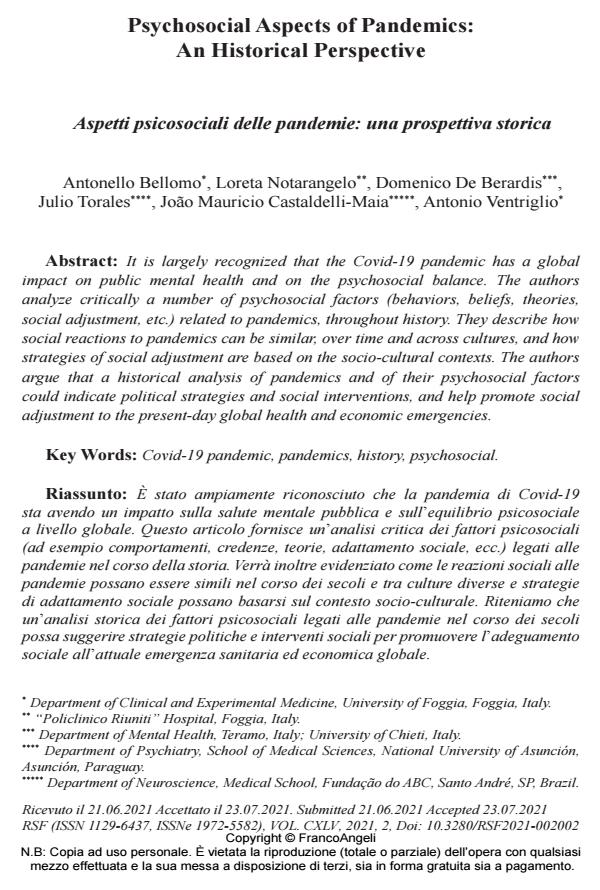Psychosocial Aspects of Pandemics: An Historical Perspective
Journal title RIVISTA SPERIMENTALE DI FRENIATRIA
Author/s Antonello Bellomo, Loreta Notarangelo, Domenico De Berardis, Julio Torales, João Mauricio Castaldelli-Maia, Antonio Ventriglio
Publishing Year 2021 Issue 2021/2
Language English Pages 12 P. 13-24 File size 156 KB
DOI 10.3280/RSF2021-002002
DOI is like a bar code for intellectual property: to have more infomation
click here
Below, you can see the article first page
If you want to buy this article in PDF format, you can do it, following the instructions to buy download credits

FrancoAngeli is member of Publishers International Linking Association, Inc (PILA), a not-for-profit association which run the CrossRef service enabling links to and from online scholarly content.
Abstract: It is largely recognized that the Covid-19 pandemic has a global impact on public mental health and on the psychosocial balance. The authors analyze critically a number of psychosocial factors (behaviors, beliefs, theories, social adjustment, etc.) related to pandemics, throughout history. They describe how social reactions to pandemics can be similar, over time and across cultures, and how strategies of social adjustment are based on the socio-cultural contexts. The authors argue that a historical analysis of pandemics and of their psychosocial factors could indicate political strategies and social interventions, and help promote social adjustment to the present-day global health and economic emergencies.
Keywords: Covid-19 pandemic, pandemics, history, psychosocial.
Antonello Bellomo, Loreta Notarangelo, Domenico De Berardis, Julio Torales, João Mauricio Castaldelli-Maia, Antonio Ventriglio, Psychosocial Aspects of Pandemics: An Historical Perspective in "RIVISTA SPERIMENTALE DI FRENIATRIA" 2/2021, pp 13-24, DOI: 10.3280/RSF2021-002002